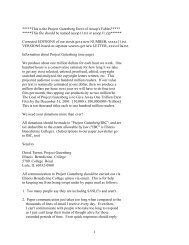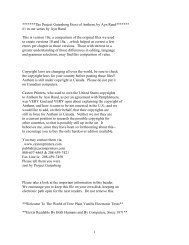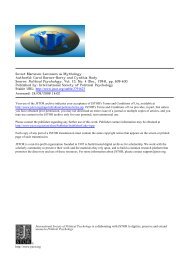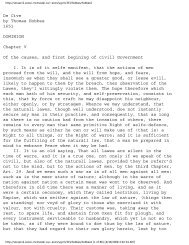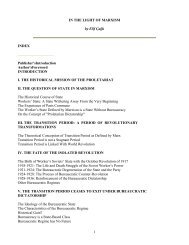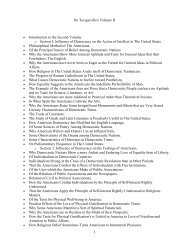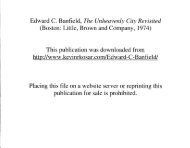Project Gutenberg Etext of The Large Catechism, by Martin Luther
Project Gutenberg Etext of The Large Catechism, by Martin Luther
Project Gutenberg Etext of The Large Catechism, by Martin Luther
You also want an ePaper? Increase the reach of your titles
YUMPU automatically turns print PDFs into web optimized ePapers that Google loves.
stand alone, but you have those witnesses with you <strong>by</strong> whom you can<br />
convict the guilty one, relying on whom the judge can pronounce<br />
sentence and punish. This is the right and regular course for checking<br />
and reforming a wicked person. But if we gossip about another in all<br />
corners and stir the filth, no one will be reformed, and afterwards<br />
when we are to stand up and bear witness, we deny having said so.<br />
<strong>The</strong>refore it would serve such tongues right if their itch for slander<br />
were severely punished, as a warning to others. If you were acting for<br />
your neighbor's reformation or from love <strong>of</strong> the truth, you would not<br />
sneak about secretly nor shun the day and the light.<br />
All this has been said regarding secret sins. But where the sin is<br />
quite public so that the judge and everybody know it you can without<br />
any sin avoid him and let him go, because he has brought himself into<br />
disgrace, and you may also publicly testify concerning him. For when a<br />
matter is public in the light <strong>of</strong> day, there can be no slandering or<br />
false judging or testifying; as, when we now reprove the Pope with his<br />
doctrine, which is publicly set forth in books and proclaimed in all<br />
the world. For where the sin is public, the repro<strong>of</strong> also must be<br />
public, that every one may learn to guard against it.<br />
Thus we have now the sum and general understanding <strong>of</strong> this<br />
commandment, to wit, that no one do any injury with the tongue to his<br />
neighbor, whether friend or foe, nor speak evil <strong>of</strong> him, no matter<br />
whether it be true or false, unless it be done <strong>by</strong> commandment or for<br />
his reformation, but that every one employ his tongue and make it serve<br />
for the best <strong>of</strong> every one else, to cover up his neighbor's sins and<br />
infirmities, excuse them, palliate and garnish them with his own<br />
reputation. <strong>The</strong> chief reason for this should be the one which Christ<br />
alleges in the Gospel, in which He comprehends all commandments<br />
respecting our neighbor, Matt. 7, 12: Whatsoever ye would that men<br />
should do to you, do ye even so to them.<br />
Even nature teaches the same thing in our own bodies, as St. Paul<br />
says, 1 Cor. 12, 22: Much more, those members <strong>of</strong> the body which seem to<br />
be more feeble are necessary; and those members <strong>of</strong> the body which we<br />
think to be less honorable, upon these we bestow more abundant honor;<br />
and our uncomely parts have more abundant comeliness. No one covers his<br />
face, eyes, nose, and mouth, for they, being in themselves the most<br />
honorable members which we have, do not require it. But the most infirm<br />
members, <strong>of</strong> which we are ashamed, we cover with all diligence; hands,<br />
eyes, and the whole body must help to cover and conceal them. Thus also<br />
among ourselves should we adorn whatever blemishes and infirmities we<br />
find in our neighbor, and serve and help him to promote his honor to<br />
the best <strong>of</strong> our ability, and, on the other hand, prevent whatever may<br />
be discreditable to him. And it is especially an excellent and noble<br />
54





